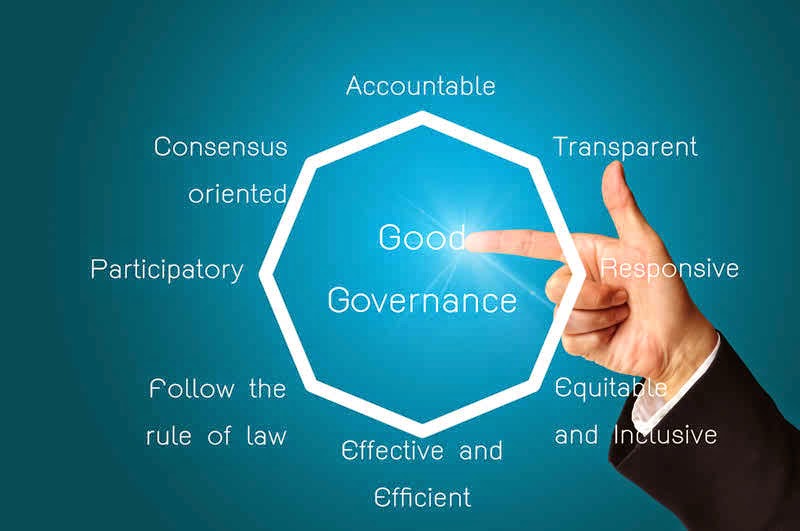Former ComEd lobbyist John Hooker gets 18 months in prison in bribery scheme – CBS News

Report on Corporate Corruption Conviction and its Implications for Sustainable Development Goals
Case Summary: Sentencing of Former ComEd Executive
A recent judicial ruling has concluded a significant chapter in a major corporate and political corruption case. The sentencing of a former Commonwealth Edison (ComEd) executive highlights critical challenges to institutional integrity and sustainable development.
- Defendant: John Hooker, retired ComEd Vice President and lobbyist.
- Conviction: Conspiracy to bribe former Illinois House Speaker Michael Madigan.
- Sentence: 18 months in federal prison and a fine of $500,000.
- Co-conspirators: Hooker was convicted alongside former ComEd CEO Anne Pramaggiore, lobbyist Michael McClain, and consultant Jay Doherty in a scheme to influence the state’s most powerful lawmaker.
Nature of the Corruption Scheme
The conspiracy involved a systematic effort by the utility company to provide financial rewards, including no-work contracts and jobs, to political allies of the former House Speaker. In exchange, ComEd sought favorable legislative treatment. This case is part of a broader investigation that also led to the conviction of Michael Madigan himself on multiple corruption charges, indicating a systemic challenge to transparent governance.
Direct Implications for SDG 16: Peace, Justice and Strong Institutions
This case serves as a critical example of the issues addressed by Sustainable Development Goal 16, which is dedicated to promoting peaceful and inclusive societies for sustainable development, providing access to justice for all, and building effective, accountable, and inclusive institutions at all levels.
- Contravention of Target 16.5 (Reduce Corruption and Bribery): The actions of the convicted individuals represent a clear instance of the corporate and political bribery that this target aims to eliminate. The prosecution and subsequent sentencing are essential actions in upholding the rule of law and combating corruption.
- Undermining Target 16.6 (Effective, Accountable, Transparent Institutions): The bribery scheme deliberately circumvented transparent processes in both corporate governance and public legislative bodies. It replaced accountability with a covert system of illicit influence, severely damaging public trust and institutional effectiveness.
- Violation of Target 16.7 (Responsive and Representative Decision-Making): By ensuring legislative outcomes were influenced by bribes rather than the public interest or the needs of constituents, the conspiracy fundamentally undermined the principles of responsive and representative government.
Wider Impacts on the Sustainable Development Agenda
The consequences of such corruption extend beyond governance, impacting several other SDGs that rely on fair and effective institutions.
- SDG 7 (Affordable and Clean Energy): As a major energy utility, ComEd’s pursuit of favorable legislation through illicit means has the potential to distort energy markets, negatively impact consumer pricing, and impede progress toward a just transition to affordable and clean energy systems.
- SDG 11 (Sustainable Cities and Communities): The integrity of essential utility services is fundamental to the development of sustainable, resilient, and equitable communities. Corruption within energy providers threatens the stability, affordability, and fairness of these foundational services.
- SDG 17 (Partnerships for the Goals): This case exemplifies a perversion of public-private partnerships. Instead of collaborating for the public good and sustainable development, the partnership was leveraged for corrupt personal and corporate gain, eroding the trust necessary for effective collaboration on achieving global goals.
SDGs Addressed in the Article
-
SDG 16: Peace, Justice and Strong Institutions
This goal is central to the article, which focuses on corruption, bribery, and the justice system’s response. The entire narrative revolves around the failure of institutions to remain accountable and transparent, and the subsequent legal actions taken to enforce justice. The article details a “bribery scandal” involving a major corporation (ComEd) and a high-level public official (former Illinois House Speaker Michael Madigan), directly addressing the core themes of SDG 16, which aims to “promote peaceful and inclusive societies for sustainable development, provide access to justice for all and build effective, accountable and inclusive institutions at all levels.” The prosecution and sentencing of the individuals involved are direct actions toward achieving justice and strengthening institutional integrity.
Specific SDG Targets Identified
-
Target 16.5: Substantially reduce corruption and bribery in all their forms
The article directly relates to this target by describing a specific case of high-level corruption. The text states that a former ComEd executive was sentenced for “conspiring to bribe former Illinois House Speaker Michael Madigan.” The scheme involved arranging “no-work contracts and high-paying jobs to his allies in exchange for favorable treatment.” The conviction and sentencing of the executive represent an action taken to combat and penalize bribery, which is the primary focus of Target 16.5.
-
Target 16.6: Develop effective, accountable and transparent institutions at all levels
The bribery scheme described in the article is a clear example of the breakdown of effective and accountable institutions. A public official, Michael Madigan, is accused of “running a yearslong criminal enterprise to enrich himself and his political allies” by using his position to influence legislation for companies like ComEd. This undermines the transparency and accountability of government. The legal proceedings, including the convictions and sentencing, are measures aimed at holding these institutions and the individuals within them accountable for their actions, thereby contributing to the development of more effective and trustworthy institutions.
Indicators for Measuring Progress
-
Prosecution and conviction of individuals for corruption
The article provides concrete data that serves as an indicator of justice being served. It explicitly mentions that “Retired ComEd vice president and lobbyist John Hooker was sentenced to a year and a half in prison” and that Michael Madigan himself was “convicted in February of 10 corruption counts – including bribery conspiracy, bribery, and wire fraud.” These convictions are direct measures of the enforcement of anti-corruption laws.
-
Existence and enforcement of anti-corruption legal frameworks
The article implicitly points to this indicator by referencing the legal basis for the prosecution. It mentions the case was tried under “federal criminal anti-corruption laws” and notes that sentencing was delayed pending a U.S. Supreme Court ruling that “narrowed the scope” of these laws. This highlights the presence of a legal framework to combat corruption and the ongoing process of its interpretation and enforcement by the justice system.
-
Financial penalties imposed for corruption-related offenses
A specific financial indicator is provided in the article. It states that John Hooker was sentenced to “a fine of $500,000.” This fine is a quantifiable measure of the penalties applied in response to corrupt activities, serving as a deterrent and a form of restitution.
Summary of Findings
| SDGs | Targets | Indicators |
|---|---|---|
| SDG 16: Peace, Justice and Strong Institutions |
|
|
Source: cbsnews.com

What is Your Reaction?
 Like
0
Like
0
 Dislike
0
Dislike
0
 Love
0
Love
0
 Funny
0
Funny
0
 Angry
0
Angry
0
 Sad
0
Sad
0
 Wow
0
Wow
0












































































